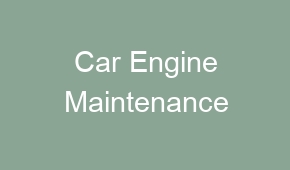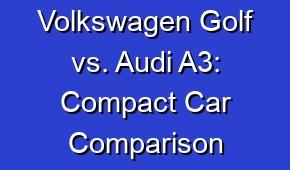Car Engine Maintenance

Regular car engine maintenance is crucial for optimal performance and longevity. It involves checking oil levels, replacing filters, inspecting belts and hoses, and ensuring proper coolant and fuel levels. Neglecting maintenance can lead to costly repairs or breakdowns.
Car Engine Maintenance is essential for keeping your vehicle running smoothly and efficiently. Regular oil changes are crucial to the longevity of your engine and should be done every 3,000 to 5,000 miles. Additionally, it’s important to check and replace the spark plugs regularly to ensure proper combustion. Checking the air filter and coolant levels is also important for maintaining optimal engine performance. In addition, it’s important to have your engine inspected and tuned up by a professional mechanic at least once a year. Ignoring routine engine maintenance can lead to more serious problems down the line, such as engine failure or decreased fuel efficiency.
| Regularly change the oil and filter to keep your car engine running smoothly. |
| Make sure to check the coolant level and top it up as needed. |
| Clean or replace the air filter to improve fuel efficiency and engine performance. |
| Inspect the spark plugs and replace them if necessary for optimal combustion. |
| Regularly inspect and tighten the engine belts to prevent slippage. |
- Monitor the engine’s temperature gauge to prevent overheating.
- Use the recommended fuel octane rating to avoid engine knocking.
- Keep the battery terminals clean and tight for proper electrical connections.
- Check the engine oil level regularly to ensure it is within the recommended range.
- Inspect and replace worn-out or damaged engine mounts to minimize vibrations.
What are the common signs of a car engine problem?
A car engine problem may exhibit symptoms such as strange noises, decreased performance, excessive smoke, or engine overheating. These signs indicate the need for maintenance or repair.
How often should I change the engine oil?
Regular engine oil changes are crucial for maintaining optimal engine performance. The general recommendation is to change the oil every 3,000 to 5,000 miles or as per the manufacturer’s guidelines.
What are the potential causes of engine overheating?
Engine overheating can be caused by issues like a malfunctioning thermostat, coolant leaks, radiator problems, or a faulty water pump. Prompt diagnosis and repair are necessary to prevent further damage.
What is the significance of checking and replacing the air filter?
A clean air filter ensures proper air flow to the engine, improving fuel efficiency and engine performance. Regularly inspect and replace the air filter every 12,000 to 15,000 miles or as recommended by the manufacturer.
How can I prevent engine belt failure?
To prevent engine belt failure, regularly inspect the belts for wear and tear, tension, and proper alignment. Replace worn or damaged belts promptly to avoid engine damage.
Why is it important to check and maintain proper tire pressure?
Maintaining proper tire pressure is crucial for optimal fuel efficiency, tire longevity, and overall vehicle performance. Regularly check and adjust tire pressure as recommended by the manufacturer.
What causes the Check Engine Light to illuminate?
The Check Engine Light can be triggered by various issues, including faulty oxygen sensors, loose fuel caps, catalytic converter problems, or engine misfires. It signifies the need for immediate attention and diagnosis.
How can I prolong the life of my car battery?
To extend the life of your car battery, keep the battery terminals clean, check the electrolyte levels, and avoid draining the battery excessively. Regular maintenance and proper usage can enhance battery longevity.
What is the importance of regular spark plug replacement?
Regular spark plug replacement ensures proper fuel combustion, engine efficiency, and reduced emissions. Replace spark plugs as recommended by the manufacturer or around every 30,000 miles.
Why should I regularly inspect and replace the fuel filter?
The fuel filter prevents contaminants from entering the engine, ensuring clean fuel supply, optimal engine performance, and protection against damage. Replace the fuel filter as recommended by the manufacturer.
What are the consequences of ignoring engine coolant leaks?
Ignoring engine coolant leaks can lead to engine overheating, potential engine damage, and costly repairs. Promptly address coolant leaks to prevent further complications.
How can I maintain a properly functioning ignition system?
To maintain a properly functioning ignition system, regularly inspect and replace spark plugs, ignition coils, and wires. Proper maintenance enhances engine performance and reliability.
What is the role of the serpentine belt in the engine?
The serpentine belt powers various engine components, including the alternator, power steering pump, and air conditioning compressor. Regular inspection and replacement are necessary to avoid belt failure.
Why is it important to use the correct engine oil viscosity?
Using the correct engine oil viscosity ensures adequate lubrication, proper engine performance, and protection against wear and tear. Consult the vehicle’s manual for the recommended oil viscosity.
What can cause engine misfires and how can I address them?
Engine misfires can be caused by faulty spark plugs, ignition coils, fuel injectors, or sensor malfunctions. Diagnose and address the specific issue to prevent further damage.
What are the benefits of regular engine tune-ups?
Regular engine tune-ups optimize fuel efficiency, enhance engine performance, and identify potential issues at an early stage. Consult the manufacturer’s recommendations for tune-up intervals.
How can I prevent engine overheating during summer months?
To prevent engine overheating in hot weather, check coolant levels, inspect the radiator, use proper coolant, and avoid prolonged idling. Regular maintenance helps ensure proper cooling system function.
What are the consequences of using the wrong octane fuel in my car?
Using the wrong octane fuel can result in engine knocking, reduced fuel efficiency, and potential engine damage. Always use the fuel octane recommended by the manufacturer.





















